What Synodal decisions of the Greek Church on OCU imply
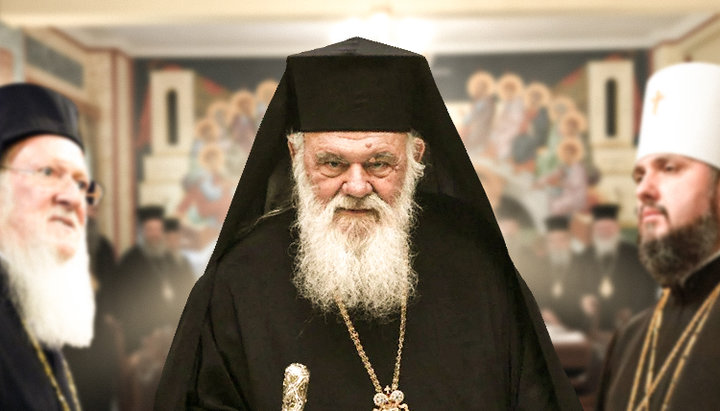
The decision of the Greek Synod is as follows in outline: we have decided so far not to decide anything, i.e. to postpone the issue. But emotions run high behind it.
The three-day meeting of the Holy Synod of the GOC on August 26-28, 2019, was announced by many media as the one at which a long-awaited recognition of the OCU by the first (after Constantinople) Local Orthodox Church was supposed to take place. The Greek agency Romfea, which apparently sympathizes with Phanar, affirmed this in the news of August 26, 2019: “It is noteworthy that the Church of Greece is the first Orthodox Church to recognize the autocephaly of the Church of Ukraine granted by the Ecumenical Patriarchate a few months ago.”
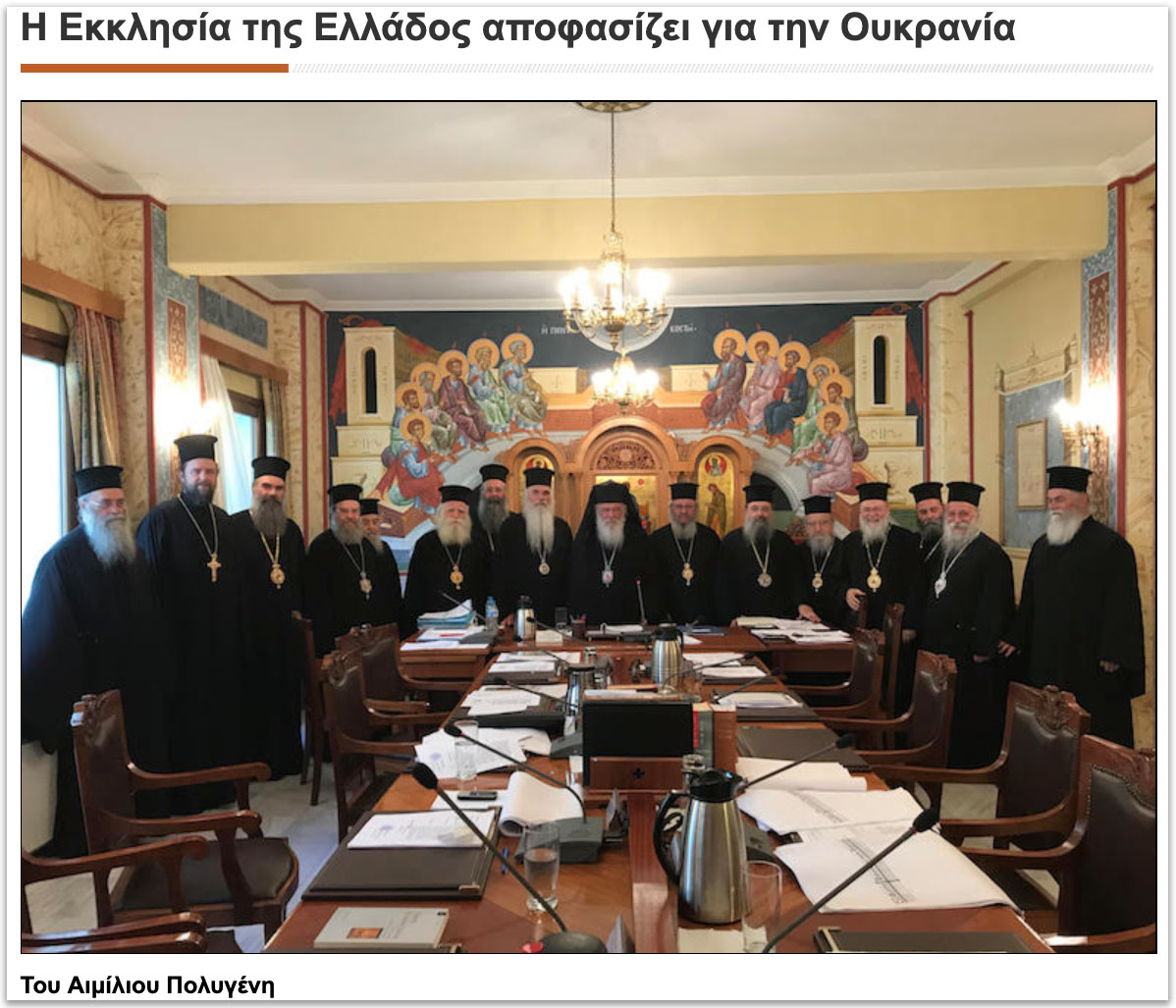
Recall that in July 2019, Patriarch Bartholomew in an interview with TSN said that the Church of Greece would be the first among the Local Churches to recognize the OCU: “We pray and hope that all Local Orthodox Churches will sooner or later recognize the independence of the Orthodox Church of Ukraine, but the first Church to recognize the local church of Ukraine will be its sister-church – Orthodox Church of Greece."
After the Holy Synod of the GOC had finalized its work, some Ukrainian media hastened to report that it had decided on the canonicity of the OCU.
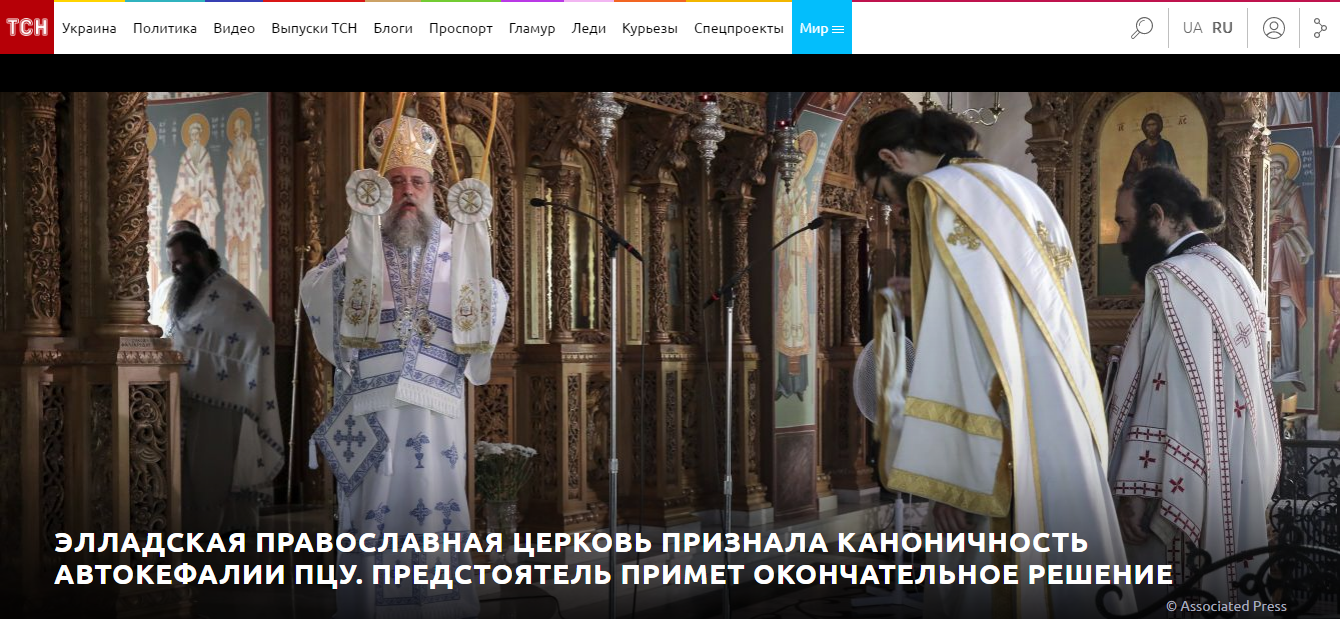
This is not so, of course.
Some media were a little more cautious. Nevertheless, they also said that the current decisions of the Greek Synod are a step towards the recognition of Ukrainian schismatics.
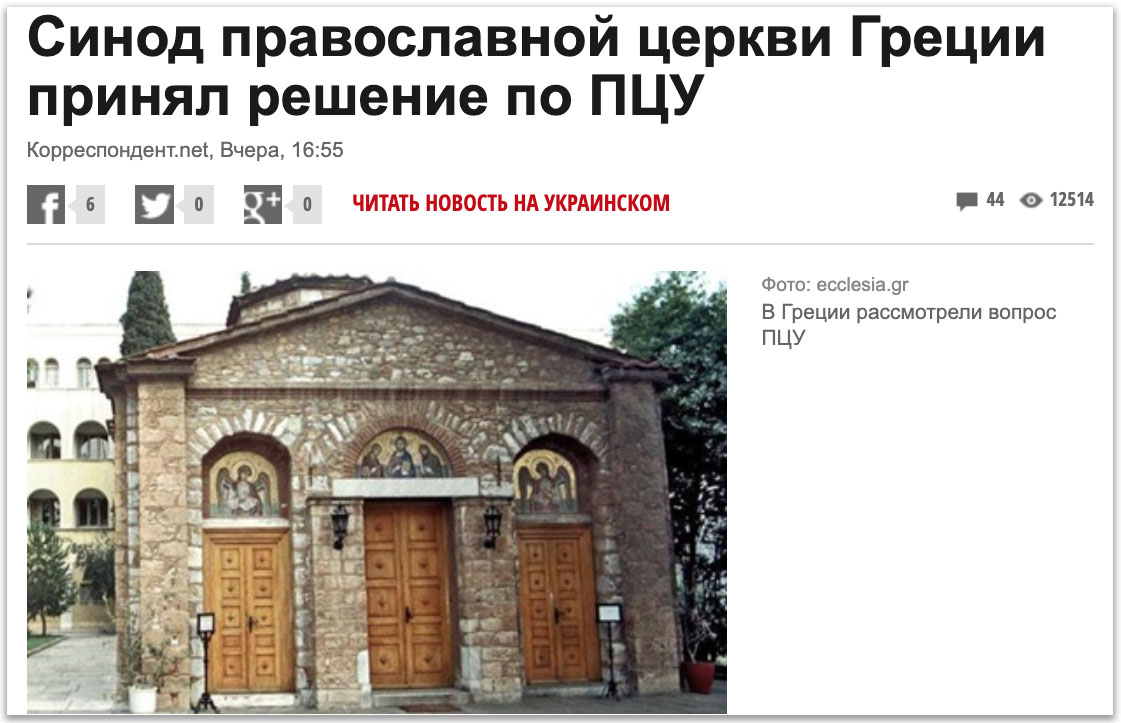
This is also not true. What did the Holy Synod of the Greek Church really decide? This was reported in the press release of the Synod of August, 28, 2019.
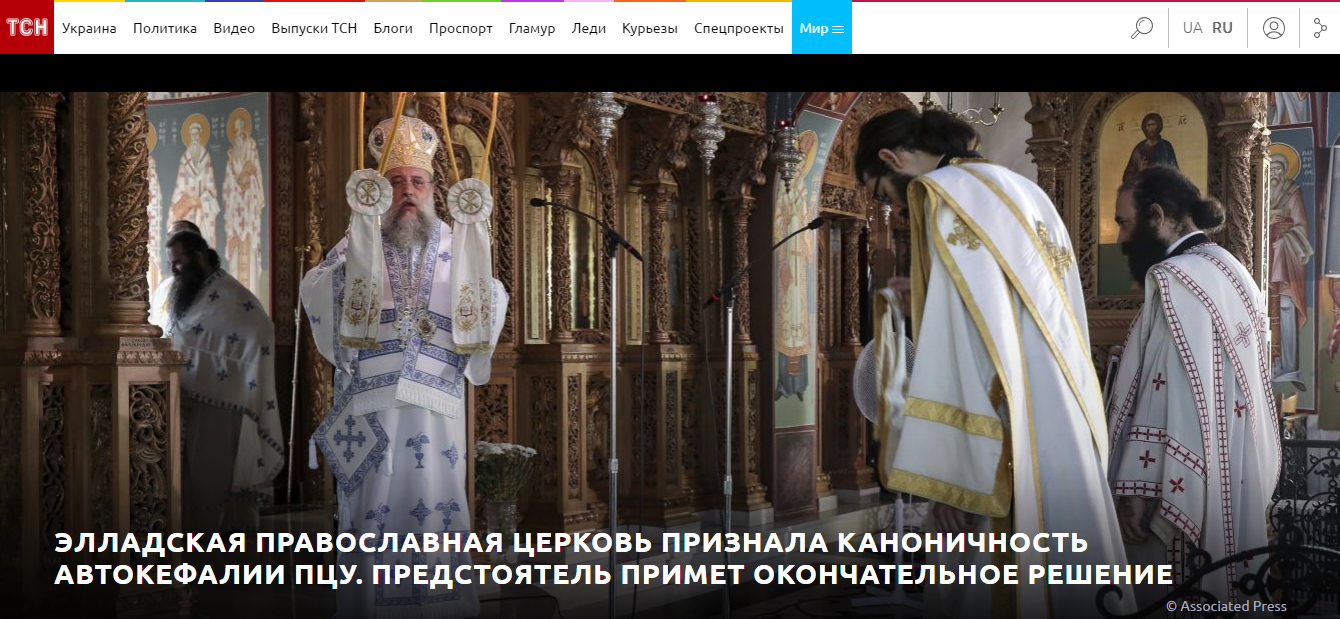
A small penultimate paragraph is devoted to the “Ukrainian issue” in the press release: “After the reports of the Synodal Committees on dogmatic and legal issues and inter-Orthodox and inter-Christian relations on the Ukrainian issue, the Permanent Holy Synod of the Orthodox Church of Greece recognizes the canonical right of the Ecumenical Patriarch to grant Autocephaly as well as the privilege of the Primate of the Church of Greece to further resolve the issue of recognition of the Church of Ukraine.”
After reading this text, three questions arise:
1. What does “privilege of the head of the GOC to further resolve the issue of recognition of the Church of Ukraine” mean?
2. What is meant by the "canonical right of the Ecumenical Patriarch to grant autocephaly"?
3. What exactly is contained in the reports of the Synodal Committees on dogmatic and legal issues?
First point. On the privilege of the GOC Primate
The Ukrainian media interpreted the situation in such a way that the Greek Synod had allegedly instructed the Primate, His Beatitude Ieronymos, to take further steps to recognize the OCU. For example, Novoye Vremya (New Time – Ed.) newspaper reported that the Synod had decided to “delegate authority to the Primate of the Church of Greece (Archbishop Ieronymos) to further deal with the issue of recognition of the Church of Ukraine”.
However, in reality, the members of the Greek Synod tried to shift the responsibility for resolving this issue personally to their Primate. Romfea agency quotes one of the participants in the meeting of the Synod of the GOC: “We jointly recognized the privilege of the Archbishop to deal with this issue independently.”
However, His Beatitude Ieronymos did not agree to this and stated, “I cannot take such a responsibility, I will take it along with the Bishops’ Council.”
At the same time, Romfea draws attention to the fact that the “Ukrainian issue” is not included in the agenda of the GOC Bishops' Council, which is due to take place in October. But after all, the Synod at the meeting on August 28, 2019, could officially change this agenda and include in it the issue of recognition of the OCU. Yet, as far as we can see, the Synod of the Greek Church did not do this, but merely left it to the discretion of its Primate to deal with this issue. According to Romfea which refers to its own sources, in October His Beatitude Ieronymos will propose to the Council of Bishops to consider the “Ukrainian issue” off the agenda, so to say. In our bureaucratic tradition, this is called "miscellaneous". However, he is free to either propose or not.
Thus, the Greeks put through a simple combination for external forces. Instead of making a decision to change the agenda of the October Bishops’ Council and include the “Ukrainian issue” there, they delegated the right to decide to the Primate, whereas the Primate disavowed this right in favor of the Bishops' Council. But then again – without adding it to the agenda.
Second point. On the canonical right of the Ecumenical Patriarch to grant autocephaly
The recognition of the "canonical right of the Ecumenical Patriarch to grant autocephaly" can be understood in two ways: either as recognition of this right in general, or in a specific case with the OCU. Here the Greeks show diplomacy and offer everyone to interpret these words to their taste. The right of Constantinople to grant autocephaly is not disputed at all by anyone, if we are talking about its own church structures.
In the history of the Orthodox Church, autocephaly was granted by two Local Churches: the Church of Constantinople and the Russian Church. Phanariots at one time granted autocephaly to the Russian, Bulgarian, Romanian and other Local Churches. The Russian Church granted autocephaly to the Polish, Czechoslovak and American Churches.
However, not everything is as clear here as in the case of the Church of Constantinople. Phanariots are jealous of their "exclusive" right to grant autocephaly and do not really welcome such actions from other Churches, in particular, from the Russian Church.
The Polish Church received two Tomos on autocephaly from Constantinople in 1924 and from the Russian Orthodox Church in 1948. Czechoslovakia also received two: from the Russian Orthodox Church in 1951 and from Phanar in 1998. Which of these Acts was the real bestowal of autocephaly is approached by canonists of different Churches according to their discretion. The autocephaly of the Orthodox Church in America, which was granted by the ROC in 1970, is recognized only by the ROC, as well as by the Georgian, Bulgarian, Polish, and Czechoslovak Orthodox Churches. The remaining Local Churches continue to regard the American Church as part of the Russian Church and are in Eucharistic communion with it.
As for the case of “granting” of autocephaly to the OCU, the Greeks could not recognize Phanar’s right to grant autocephaly here. Why? See point three.
Third point. What is written about in the reports of the Synodal Committees of the Greek Church?
The RIA Novosti news agency informed with reference to its own sources on the content of the reports of the Synodal Dogmatic and Legal Commissions: “Both commissions have objections, serious objections to the question of whether it should be recognized. And each one explained the reasons,” the source said. Therefore, the Synodal Commissions not only expressed their negative attitude to the idea of recognizing the OCU, but also delivered powerful arguments to substantiate their opinion. We do not know the details, but with a high degree of probability we can assume that recognition of the OCU is impeded by the following:
- lack of repentance by the “reunion” with the Church;
- absence of canonical ordinations with the majority of the “episcopate” of the OCU;
- categorical disagreement of the Ukrainian Orthodox Church, which is recognized as the only canonical Church in Ukraine and is twice as numerous in terms of parishes as the OCU, to participate in the Phanar project of Ukrainian autocephaly.
This list of obstacles to the recognition of OCU is certainly not complete, but this is what has already been voiced in official decisions on the “Ukrainian issue” by other Local Churches.
Moreover, the source of RIA Novosti reported that the reports of the Synodal Commissions criticized the leadership of the Patriarchate of Constantinople and recognized the fact that Phanar, by its illegal decisions in Ukraine, had driven itself into a dead end: “... the Patriarchate of Constantinople, if it wants to save its authority, should convene a ”Pan-Orthodox Synod on a single issue – Ukraine.” Regarding the mood of the Greek hierarchs, the source of RIA Novosti admitted: "However, I think, that there are very few Greek metropolitans who recognize such a bad schismatic situation."
Romfea conveys the following words from one of the hierarchs of the Church of Greece who took part in the work of the Synod: “In other cases, we did not have to recognize autocephaly by the entire hierarchy as it was with other autocephalous Churches in the Balkans. Here we have a special case with schismatics who were not ordained and were excommunicated."
Thus, there is no reason to affirm that the hierarchs of Greece are unanimous in their desire to recognize the OCU, as it is highlighted by many Ukrainian “patriotic” resources.
Therefore, we ask ourselves the following question: can the October Bishops' Council of the GOC recognize the OCU against negative conclusions, which were announced publicly at the meeting of the Holy Synod of the GOC Synodal Commissions, led by authoritative hierarchs, and in the absence of unity among the majority of hierarchs on this issue?
The answer seems less obvious. The same interlocutor, whom RIA Novosti correspondents spoke to, admitted that “a lot of pressure” is being put on the Greek Church and at the same time expressed confidence that “Archbishop Ieronymos is a diplomat and I am sure he will find ways to avoid this.”
Who exactly exerts this pressure is not a secret. Representatives of the US State Department, who openly and persistently lobby the OCU project, regularly meet with the Primates of the Local Churches in order to get them to recognize the new structure. So far they have failed. But in their hands there are very weighty arguments to influence the dissident.
It is noteworthy that the current US Ambassador to Greece is Geoffrey Pyatt, who until 2016 was the Ambassador to Ukraine and whom many refer to as one of the co-organizers of the Maidan and subsequent events. Pyatt is now actively doing his best to force the Greek hierarchs to recognize the OCU. For example, back in 2018, he met with the rector of the Athos Monastery, Vatopedi, Archimandrite Ephraim, who although subordinate to the Patriarchate of Constantinople, at the same time has great authority in Greek Orthodoxy.
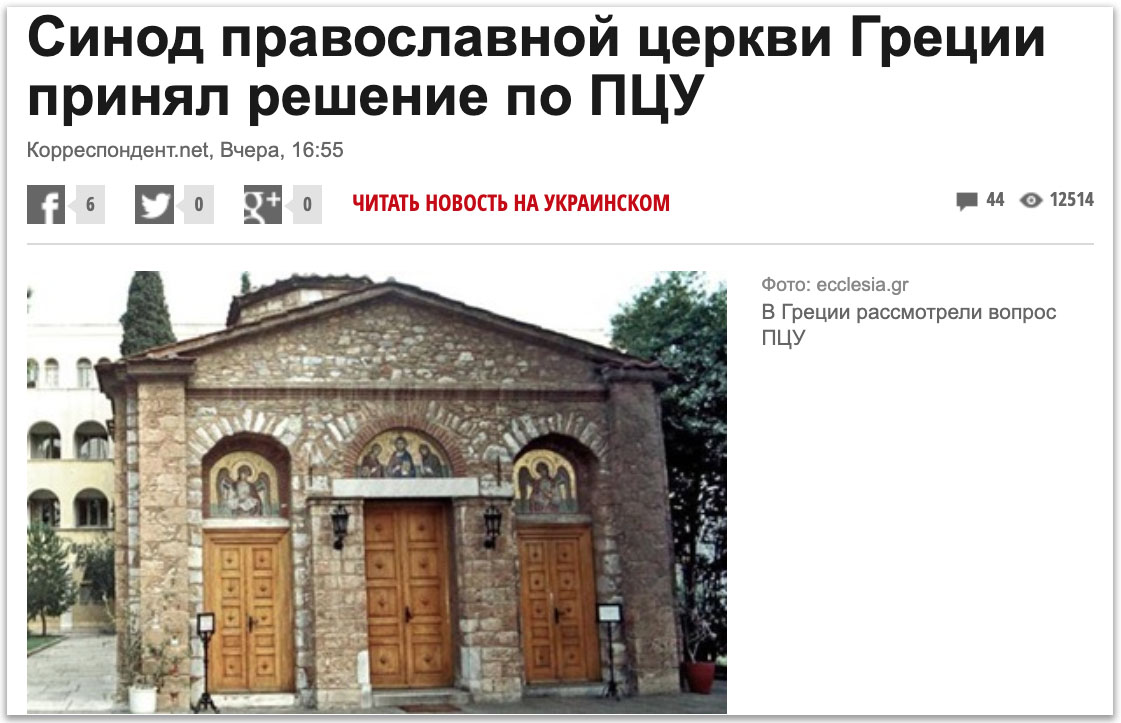
Archimandrite Ephraim is known to have come to Kiev to attend the "enthronement" of Epiphany, but he did it so compelledly that he chose to go to the hospital lest he would have to participate in this lawless act.
It is not known what the current "enormous pressure" exerted on the hierarchs of the Church of Greece will result in and what they will decide on the "Ukrainian issue" in October at a meeting of the Council of Bishops. However, the current meeting of the Holy Synod of the GOC has made it all the more obvious that the pro-OCU position cannot be substantiated by any dogmatic, canonical, or other purely ecclesiastic arguments.
The OCU project is a political project which means that whoever’s recognition of this organization can be achieved only by political methods. For any believer, this should be an indicator that the OCU has nothing to do with the Church of Christ. The choice is getting even more obvious: either to remain faithful to Christ and His Commandments, or to fulfill the will of the US Department of State.
“No one can serve two masters. Either you will hate the one and love the other, or you will be devoted to the one and despise the other. You cannot” (Matt. 6, 24).
As for the Greek hierarchs, as well as the hierarchs of all the other Local Churches, one can only wish them stamina and fortitude in upholding the Truth of Christ before the powers that be. We hope it would be the case.











